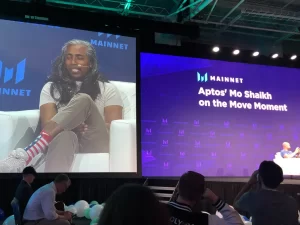
Aptos Labs blockchain launched its mainnet on Monday, becoming the first of the Facebook spin-off networks to premiere and putting to the test its multibillion-dollar valuation.
Aptos is the brainchild of several ex-Meta employees who pioneered the company’s failed diem stablecoin. The Aptos blockchain’s code is written with Move, the Rust-based programming language favored by Mysten Labs’ Sui blockchain, another upcoming network.
While Aptos Labs has declared its network “live,” its ecosystem is far from completed, with dozens of teams yet to launch the wallets, trading venues and non-fungible token tech essential to decentralized finance (DeFi). Until those – and a token – debut, there won’t be much to do on Aptos.
The blockchain itself is up and running, having completed its “genesis transaction” on Oct. 12. Even so, the infrastructure has proven rocky; People building within Aptos told CoinDesk the mainnet rollout was “rushed.”
The buzzed-about blockchain first made headlines in March after securing $200 million in a funding round led by a16z, with major investors including Tiger Global, Katie Haun, Multicoin Capital, FTX Ventures, Coinbase Ventures, Binance Labs and PayPal Ventures rushing in to finance the project.
That flood of investor dollars was quickly followed by another gold rush when, in July, Aptos closed a $150 million Series A round led by FTX Ventures and Jump Crypto, with participation from Binance Labs. The second funding round set the company’s. reported valuation at $2 billion, four times higher than the company’s previous valuation just six months earlier.
Living up to that lofty valuation may prove pivotal to Aptos’ stated goal of becoming the home for Web3. It has taken direct aim at other faster and cheaper alternatives to Ethereum, perhaps most notably Solana, another blockchain in the Rust language family.
